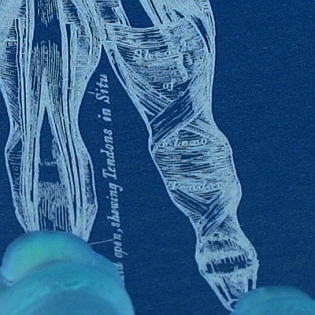Anatomy of an Autistic (III/V)
Passing is….
Passing is…
Well, passing is difficult, first of all. It’s constant anxiety, calculation, cognition, because remember, those of us who pass are trying to be a person we aren’t, a member of a species that, should it know our true identity, expels us. The trick to passing, to passing well, is to make it look natural.
Passing means repressing, memorizing rules, sublimating, jumping through hoops, and turning tricks so we can get the human treatment. It means making it so that when you reveal your diagnosis to someone they “never would have guessed it”.
Passing is supposed to be a good thing. It’s convenient for the enabled and beneficial for the passing. The passing gets college, health care, respect, an audience to speak to, friends, work, a house, etc.
What I want to know is why do I have to pass in order to implicitly deserve any of these things?
What I want to know is since when did being treated like a human being have requirements?
When I am actively, deliberately passing as nonautistic, I am supporting power structures I benefit from. I am saying through my actions that it is okay to divide the human race along these lines, to treat people who fall outside of these lines like this, to save all the privilege and benefits and nice things for the safe normal people, etc. And you know, there are a million reasons to deliberately do this, some of them okay and a lot not, but in the end I am still supporting and ironically benefiting from a power structure designed to oppress and disable me.
But there is nuance to this. Silence is safety, of course, and being safe is important. And we aren’t all cut out to be radical, kyriarchy-smashing activists.
And what of those of us who pass without really trying all that hard?
There is a certain amount of ridiculousness to that idea, of course. Of course we have to try hard, speaking (speaking!) and socializing and reacting and parroting like the neurotypicals around us takes effort even (especially?) when we don’t realize it. Being a fake person, a half person, a glass girl or a ghost takes work. We tend to burn out eventually, no matter how brilliant a job of faking it we were doing. Or maybe we develop depression, anxiety, dissociation secondary to our autism as a result of this facade? Perhaps we take an increasingly upped litany of pills to cope. At the very least, we spend so much time learning how to be an acceptable human being that we forget, or never learn, how to be an autistic one.
Or to question why the one isn’t the same as the other.
Julia Bascom blogs at Just Stimming.
Anatomy Of An Autistic appears here, in five parts, by permission.
[image via Flickr/Creative Commons]
Julia Bascom on 12/28/11 in Autism, featured | 1 Comment | Read More
Comments (1)



The beast is not rational, it neither trusts or is trustworthy, it gives no quarter except to kin. Civilisation is paper thin, balanced on the threads of reciprocality. Autistics find that almost immeasurably difficult but so do many non-autistics. Ideally the necessary compromise would come from self discipline, but no society or institution on earth has succeeded on this basis.